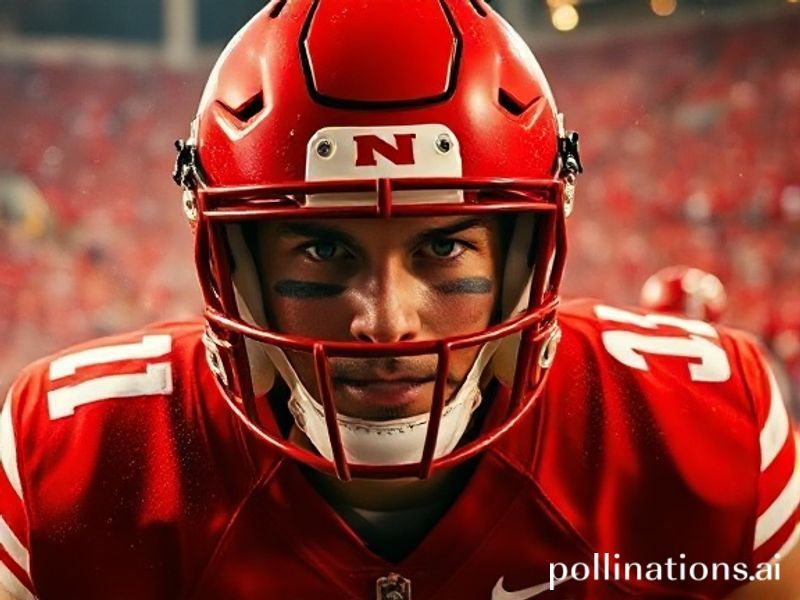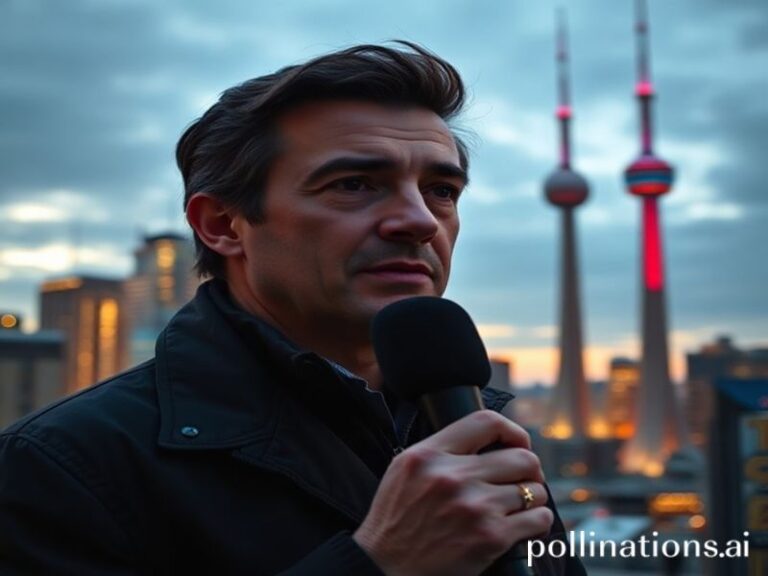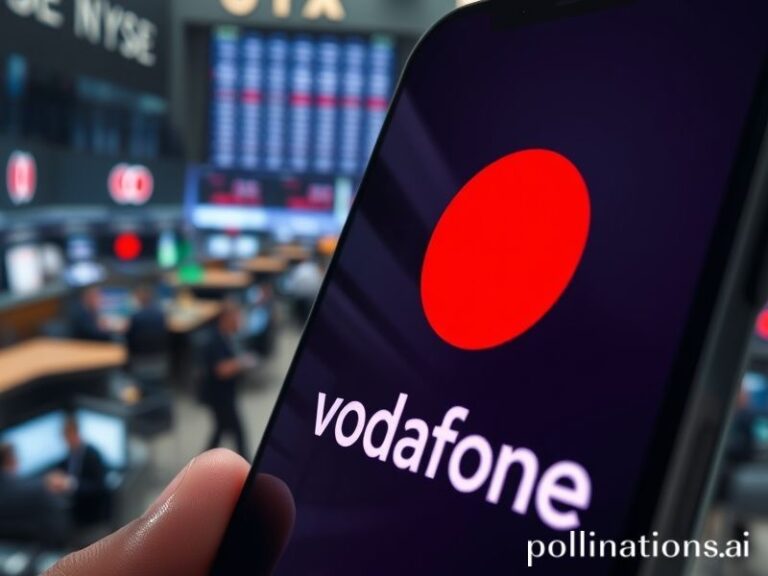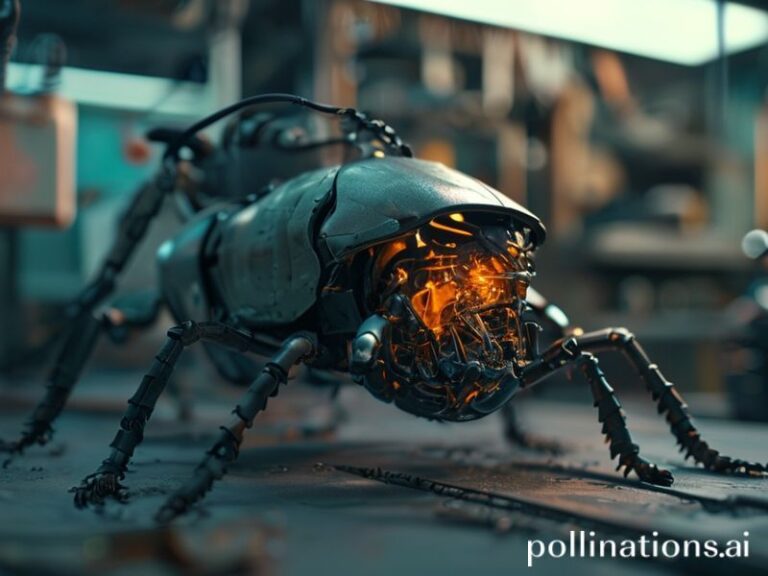From Cornfields to Qatar: How ‘Huskers’ Became the World’s Most Unlikely Soft-Power Brand
Huskers: How a Corn-Fed College Nickname Took Over the Planet
By the time the sun sets over the Shanghai skyline, a 19-year-old in a knock-off scarlet hoodie is live-tweeting Nebraska’s spring practice in Mandarin. Meanwhile, in Lagos, a betting syndicate is crunching play-action tendencies from grainy YouTube clips of the 1995 “Scoring Explosion” squad. Somewhere in the Alps, a Davos-bound financier idly scrolls through r/Huskers on the gondola, wondering if the $1.2 million he just parked in U.S. farmland futures is somehow spiritually hedged by the devotion of 2.1 million global redditors who still argue about whether Tommie Frazier could beat Brock Purdy in a 40-yard dash.
Welcome to the geopolitical mulch pile that is Husker Nation—an accidental soft-power export that proves three immutable laws of late-stage capitalism: 1) nostalgia is more fungible than soybeans, 2) every underdog story eventually gets strip-mined for content, and 3) if you chant “Go Big Red” long enough, someone in Brussels will try to tax it.
The term itself—“Huskers”—started as a humble 19th-century synonym for “corn shuckers,” the farmhands who stripped ears by hand in the unforgiving Nebraska wind. Today the word has become a transnational Rorschach test. In Jakarta, it conjures images of wholesome Midwestern virility; in Moscow, it’s a data point in the ongoing psy-op playbook (“Americans worship amateur teenagers in tight pants; exploit accordingly”). Amazon’s recommendation algorithm, never one to waste a micro-trend, now cross-pollinates “Husker hoodie” searches with Japanese selvedge denim and Korean sheet masks—because nothing says rugged agrarian mystique like snail-mucin skincare.
The numbers are almost cute until you remember they’re real. Nebraska’s athletic department pockets roughly $5 million annually from international media rights—peanuts compared to the Big Ten’s Fox deal, but enough to finance a satellite camp in Monterrey where Mexican linebackers learn the intricacies of the 3-4 defense while U.S. diplomats pretend this isn’t a form of cultural terraforming. When the team visited Dublin for the 2022 “Aer Lingus College Football Classic,” the Irish Times politely described the invasion of 40,000 red-clad pilgrims as “an economic stimulus in cleats.” Less reported: Dublin Airport’s duty-free sold out of Runza frozen beef pockets, a culinary war crime the Hague has yet to address.
Soft power aside, the Huskers have become a dark-horse case study in how digital diasporas weaponize sentiment. In 2023, a Singaporean AI firm scraped decades of fan message boards to train a customer-service bot that now answers 38% of global telecom complaints in the tone of a kindly Nebraskan grandmother offering Jell-O salad. The bot’s empathy score beats every human call-center script tested, which is either a triumph of machine learning or a damning indictment of our species, depending on your caffeine intake.
Even the sanctions economy can’t resist. When the EU slapped retaliatory tariffs on U.S. ethanol, Nebraska’s governor suggested shipping surplus corn to Qatar in exchange for liquified natural gas. The deal collapsed, but Al Jazeera ran a puff piece on Husker volleyball’s sellout streak anyway, because nothing says neutral journalism like 8,000 screaming fans in Lincoln reminding the planet that America’s true export is synchronized optimism wrapped in polyester.
At its core, the Husker phenomenon is a cautionary tale about the commodification of authenticity. The same playbook that once sold Soviet kitsch to Brooklyn hipsters now sells Runza franchises to Dubai food courts, complete with halal beef and a side of “Nebraska Nice.” It’s all very heartwarming until you realize the university’s licensing office just trademarked the phrase “We Don’t Coast” in 17 languages, including Swahili, where it translates roughly to “We Never Decline, We Just Rebuild.” A subtle linguistic flex for a program that hasn’t won a conference title since dial-up internet.
And yet, the gravitational pull endures. Perhaps because in a world fracturing into algorithmic echo chambers, there’s something perversely comforting in 90,000 strangers agreeing to lose their voices over a 19-year-old missing an extra point. The ritual is so earnestly absurd it loops back around to profundity—like watching democracy happen in real time, only with more audible groans.
Conclusion: The next time you see a grainy highlight of the Blackshirts sacking a quarterback, remember you’re not just watching football. You’re witnessing the last universally translatable myth of American exceptionalism: the conviction that next season will be better, even when the evidence suggests we peaked somewhere around Y2K. Global markets rise and fall, empires pivot to video, but somewhere a kid in Nairobi is still learning to spell “Osborne.” Call it naïveté if you must; the rest of us will call it brand loyalty—and quietly price it into the futures market.







